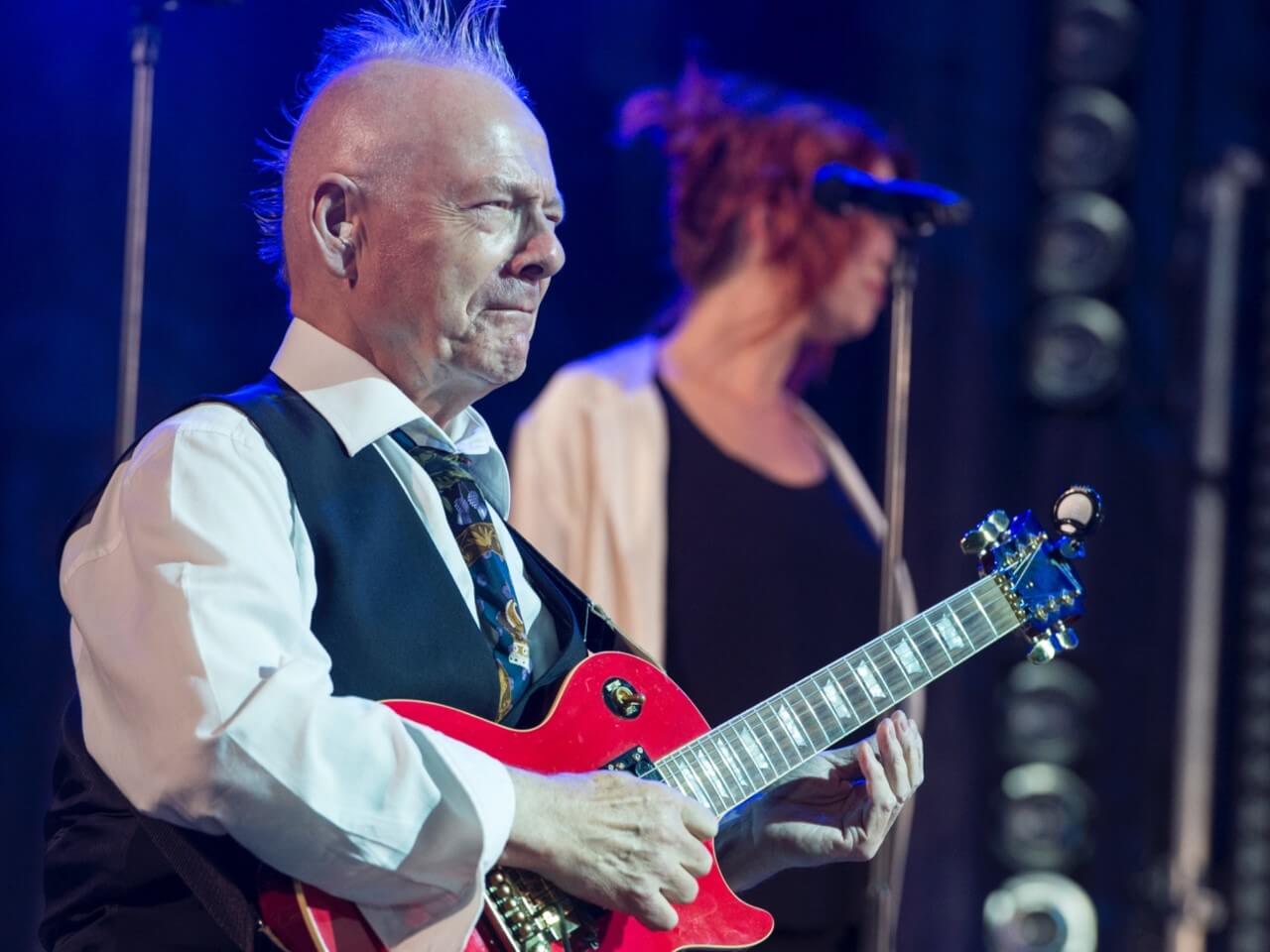Related Tags
Robert Fripp says playing with King Crimson is akin to grief: “Nothing else in my life can happen”
The guitarist says that the pressure to perform perfectly with the band is an “acute suffering”.

Image: Steve Thorne/Getty
Robert Fripp has spoken out about his expanding presence on social media – implying that the decision has relieved him from the “grief” and “suffering” he faced when playing with King Crimson.
- READ MORE: Robert Fripp And Toyah Willcox Cover David Bowie’s Heroes In Honour Of Queen Elizabeth II
In an interview with the New York Times released yesterday (19 September), Robert Fripp has elaborated on the reasons behind his growing presence on social media, confessing that playing with prog icons King Crimson led to an unshakable need for perfectionism.
“I knew what King Crimson would be if it formed […and] King Crimson for me is grief. Nothing else in my life can happen when King Crimson is in go mode,” he states, reflecting on the band’s unwavering hope to inflict social change with their music. “It is such a responsibility. The aim was to change the world. [While most artists don’t think that’s possible anymore,] it’s still an ongoing concern and a responsibility to the originating intention within King Crimson.”
The guitarist continues, explaining that he also felt pressure on an individual level when performing with the band – even going as far as stating that the pressure for a flawless performance is a form of ‘suffering’ to him.
“There is a quite distinct experience of King Crimson as an individuality [..and] for me, that is validation. But if, for whatever reason, a performance doesn’t meet what is possible, it is an acute suffering for me,” he explains. “I remember with King Crimson, […] in the autumn of 1972. I threw off a lick and it was awful. It felt like I was lying to my mother. It violated conscience for that one lick. I was lying to music and that was appalling. And it still irks me to this day.”
Elsewhere in the interview, Fripp implies that these are the reasons behind his gradual shift to social media, admitting that distancing himself from King Crimson has allowed him to explore new avenues:
“It was a privilege playing in Crimson, but it was a very specific repertoire. As a guitar player, it’s like the Olympics of guitar, phenomenally difficult lines, and it required two to four hours of practising a day. Now, King Crimson is not in go mode. I can step back from it to a certain extent and move my attention into learning E tuning.”
